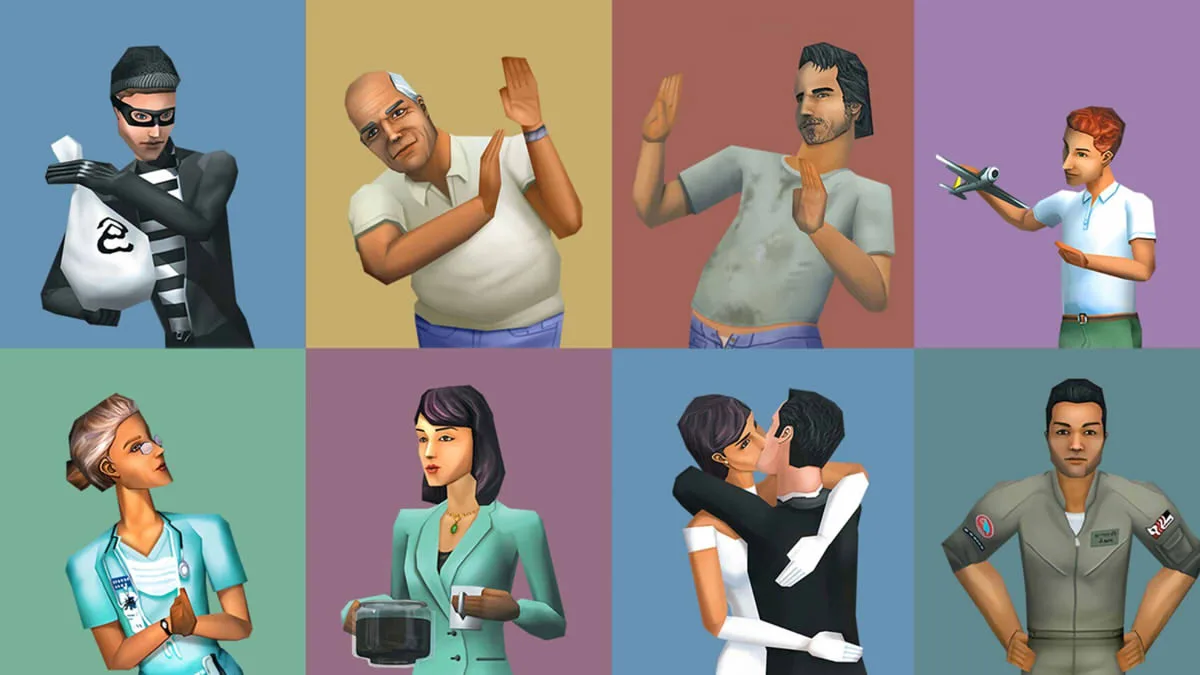The question of what makes The Sims so popular and enduring is one that you could discuss for hours-upon-hours and pages-upon-pages. But when you grind it down to the core essence it comes down to two things: being unique, and doing business.
And that’s only further enforced by a recent interview with The Sims alumni and former art director on key entries in the series, Charles London.
Quintessentially Sims
This interview is part of a series from the folks at FRVR in which they go over The Sims franchise (well worth reading, in my opinion) in detail with London. And on the question of what makes The Sims so successful he marks out two core reasons.
The first is that The Sims has a sense of humour, and it’s the first comparison he makes to Krafton’s most recent competitor Inzoi. Undoubtedly, Inzoi is a more grounded beast compared to The Sims, with little in the way of fantastical elements even as they begin to incorporate more ‘gameified’ content such as crafting.
London also points out that The Sims was quick to leverage EA’s massive resources to put out DLC in the early days not just via disc, but also the internet. And that proto live-service model has evolved into what many would point to as the most successful example of the concept in action.
Standing out from the… competition?
Not to toot my own horn, but I’m glad my constant navel gazing hasn’t been far off the mark.
The model that The Sims uses for its content and the contrast between its more self-aware and humorous world, compared to the slightly glitzy and more serious take presented by Inzoi are both factors I figured would be important.
The only problem I can see with London’s points are that they rely on looking to the past. The Sims 1 through 3 all came out before the downloadable live service, and while the internet was indeed leveraged to offer instant access for tech savvy users many would still use discs.
And lest we talk about the failure that was The Sims Online…
Not only that but, as anyone who’s had a look through the creator content libraries recently can attest, many Sims players also do their level best to make their experience more serious; something which is pointed out in the article.
Although I’d argue the ability to tailor your preferred level of wackiness is a much greater part of the appeal than the presence of humour in the first place.
Where can The Sims 4 go from here?
However, London is certainly right about one thing; The Sims is not going to be pushed out of the public consciousness anytime soon. While Inzoi is far from a failure, and other competitors are constantly vying for attention in the life sim genre, The Sims is nowhere near being dethroned as top dog.
But at the same time, The Sims 4 is more than a decade into its life-cycle. Between 2000 and 2009 we had all three of the original releases of The Sims. And while The Sims 4 still has life left in it, I stand by my idea that sometime sooner or later we’ll either be looking at a shift to some sort of ‘Sims Forever’ model or the long-awaited announcement of The Sims 5.
There are some cracks showing. The Sims Labs: Life Together is now in soft launch after the occasional test as both Project Rene and City Life Game with Friends, but issues such as the emulation of Roblox’s famous ‘dress to impress’ experience indicate that EA don’t seem intent on pushing the boundaries anymore.
And if there’s anything that could spell the beginning of the end for a franchise, it’s playing follow-the-leader.
A lifelong Maxis fan who grew up with SimCity 3000 and the lesser-known DS titles in the Sims catalogue, Iwan brings the obscure knowledge of things that have been and will be when it comes to The Sims.
